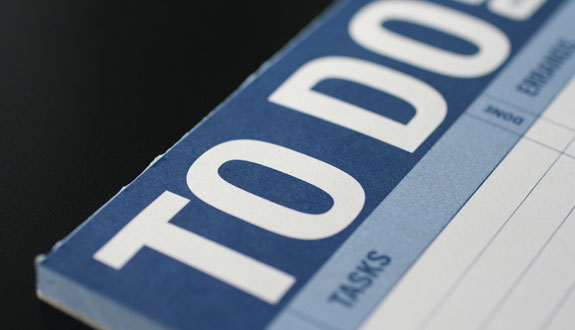
*He’s not, technically speaking, infallible. But he’s still very wise and trustworthy
The June LSAT is coming up Monday, so it’s time for our favorite every-few-months ritual: predicting what will be on the LSAT. The usual disclaimer applies — we don’t have any insider knowledge about what’s going to be on Monday’s test. Even if we did, we’d remain silent lest a team of LSAC secret agents show up at our offices with a thirst for vengeance. So, uh, anyway, what follows is a guess. Nothing more, nothing less.
Usually, we make some fun predictions, but in the end we predict that it’ll be a normal LSAT. Pretty much all LSATs are normal LSATs. It’s a good bet. We’re just happy if we, can, say, get the “curve” right. Nailed it in December, and no one will ever know if we were right or wrong in February, so let’s just say we have a streak going. But this time I’m going to go a little bit out on a limb. Let me explain.
June marks the beginning of the LSAT testing year. The modern LSAT started in June 1991. Since then, changes to the LSAT have happened in June. Comparative reading came out in June 2007 (this change was announced beforehand). The first ever rule substitution question in a logic game appeared in June 2009. Logic games were first printed on two pages each in June 2012. In the 90s and early 2000s, many Logical Reasoning questions were paired, two questions to one stimulus. The first test with only one question for each stimulus was June 2003, and every LSAT since has been that way.
Well, it’s June. And LSAC has shown that they’re willing to mix things up this year. They expanded the test schedule, and then this January they suddenly announced, “Eff it, we’re going to have a July LSAT, too!” These sudden changes are, let’s say, out of character.
And, finally, the June 2024 LSAT will be the final LSAT *ever* with a Logic Games section.
Since LSAC is in an experimental mood this year, I’m going to predict something a little bit new and different on Monday’s LSAT. Don’t panic, just read on. It’s not going to be a big deal. Something as consequential as comparative reading would have to be announced in advance. Monday’s new thing will be smaller, like maybe logic games are going back to one page each. No, I’m kidding.
The change will be really small. Something along the lines of rule substitution questions. While you may hate those questions (we all do) keep in mind that they’re just one or two questions per test. Not going to make or break your score. And LSAC isn’t that terribly cruel; the first ever rule substitution question, back in June 2009, was one of the easiest ever.
What might the change be? Maybe paired Logical Reasoning — two questions attached to the same stimulus — will return. There are rumors that such questions have been on experimental sections recently, which might augur the format’s return to the real LSAT. It might be a new and creative type of logic games question. Something like that. It’ll just be a question or two, and once you get over the shock of the weirdness it’ll be pretty easy.
It can’t be that weird. Everything that goes on the LSAT has to be tested on an experimental section first. If anything super-crazy were tested, people would talk.
Other that that, let’s talk about what to expect.
Logical Reasoning will have the usual set of question types. A solid chunk of each section will, as usual, involve dealing with flawed arguments: describing their flaws, identifying their assumptions, strengthening or weakening their logic. Weaken questions have been a bit underrepresented over the last few years. I predict they’ll come back with a vengeance. OK, maybe a mild vengeance. You could even call it a weak vengeance. Expect maybe six or seven of them.
I’m seeing questions about dentistry and about weighing the efficacy of opioid painkillers against their potential for abuse. Those might even be the same question. There might also be a question that requires you to attack a premise in an argument. Normally, we take premises as true, but if a premise itself relies on faulty reasoning then it’s fair game.
Reading Comp will be tough. Lately, that’s like predicting the sunrise, so I’ll go with it. I’m seeing a passage about early hip-hop in New York. The relationship between the Comparative Reading passages will be tricky. As has happened a number of times before, I think one of the passages will examine a small subset of the issues in the other passage.
Logic Games will be nothing special. Scenarios will be your friend, as they often are. There will be an unstable grouping game, as there has been many times over the last few years. One of the games will seem to have very few rules, and the key will be to understand exactly what restrictions come from those rules. But all in all, it won’t be too horrible.
The writing sample prompt will be boring and most people will half-ass it. What else is new?
Finally, as always, we have to cover the score conversion table, or what people often call the “curve.” I’m going to predict a nice round ten questions wrong for a 170. That’s a little stricter than usual, but not at all extreme.
Good luck, and keep in mind that if you’ve prepared by doing lots and lots of questions from recent LSATs, nothing will be that much of a surprise. Some of it will be hard. Some of it might even be weird. But it’ll test the skills you’ve been working on for the last few months in predictable ways.




